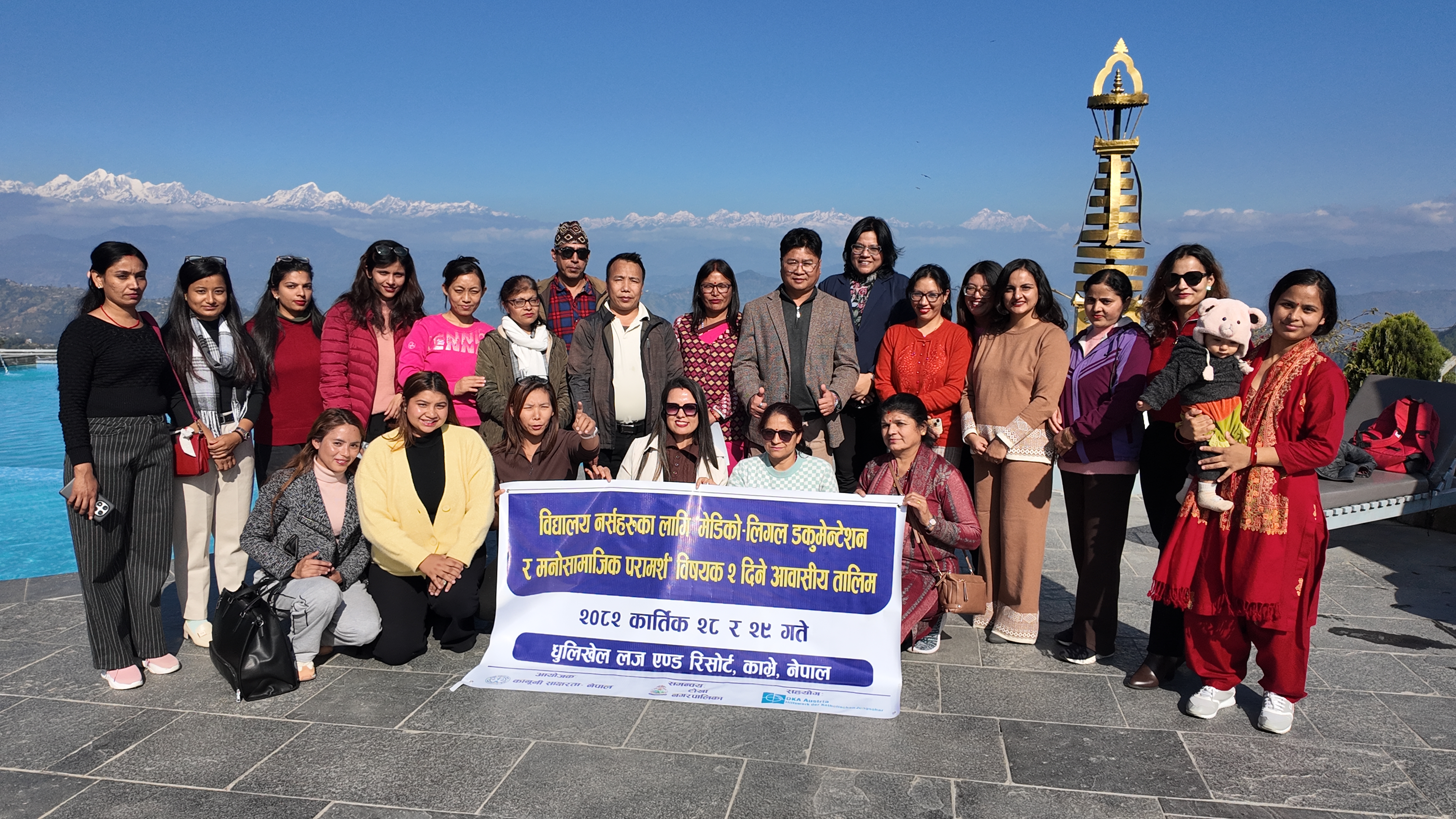LLN Organizes Two-Day Training on Psychological Counselling and Documentation
Date: 28–29 Karthik 2082 (14–15 November 2025)
Venue: Dhulikhel Lodge Resort
Participants: 18 school nurses, child protection focal persons, health teachers and representative of Health Department from Tokha Municipality.
Legal Literacy Nepal (LLN) conducted a two-day capacity-building training on “Psychological Counselling and Documentation” for staff from both community and private schools operating in Tokha Municipality. The program aimed to strengthen the skills of frontline school personnel in offering initial psychosocial support and maintaining accurate documentation essential for child protection.
Resource Persons
The training was led by two experienced mental health and forensic medicine:
· Dr. Sagun Ballav Pant, MD Psych / PhD, Department of Psychiatry & Mental Health, Institute of Medicine, Kathmandu
· Dr. Srijana Kunwar, Patan Hospital, Assitant Professor, Department of Forensic Medicine, Patan Hospital
· Their expertise contributed to a balanced combination of theoretical knowledge and practical, school-focused interventions.
Day 1: Understanding Mental Health
The first day introduced key concepts related to child and adolescent mental health. Major topics covered included:
1. Behavioral problems, anxiety, depression, and self-harm
2. Developmental disorders and dissociative conditions
3. Substance use among adolescents
4. Communication tools such as SOLER and OARS
Participants also discussed their own school-based experiences, which added practical context to the learning process.
Day 2: Practical Counselling & Documentation
The second day emphasized hands-on skills relevant to school environments. Sessions focused on:
1. Identifying signs of maltreatment, bullying, trauma, and neglect
2. Preparing documentation and maintaining detailed case notes
3. Ensuring confidentiality and understanding referral mechanisms
4. Scenario-based learning and collaborative problem-solving exercises
Outcomes
By the conclusion of the training, participants noted improvements in:
1. Recognizing early indicators of psychological distress among students
2. Confidence in offering basic psychosocial support
3. Knowledge and skills for proper documentation and reporting
4. Coordination with families, schools, and external service providers
The program was supported by DKA Austria.
